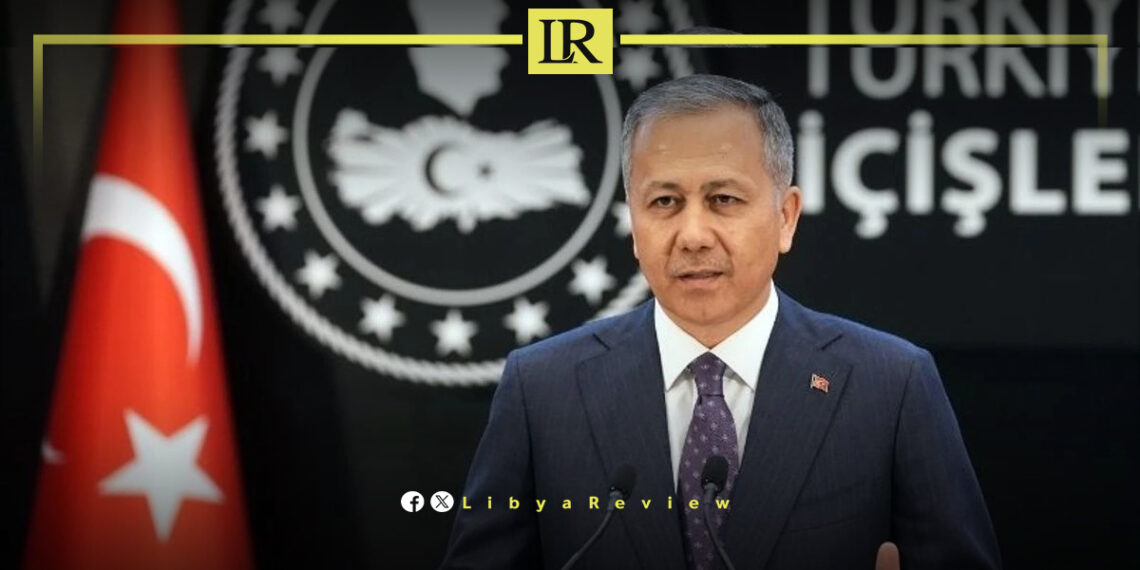Turkish Interior Minister Ali Yerlikaya has stated that Libya is facing a “difficult and demanding test” in dealing with irregular migration, emphasizing that Ankara is ready to deepen cooperation and share its extensive experience in migration management with Libyan authorities.
Yerlikaya made the remarks during his visit to Tripoli, which he described as a reciprocal response to the visit made last year by Interior Minister Emad Al-Trabelsi to Istanbul during Expo 2024.
Speaking to Anadolu Agency, the minister said Turkey remains committed to supporting Libya’s unity, stability, and internal security.
He noted that the visit aims to strengthen cooperation between the two interior ministries and help institutionalize the exchange of expertise—particularly in the sensitive and increasingly urgent field of migration control.
“Libya is currently undergoing a very challenging test related to irregular migration,” Yerlikaya said. “We shared our observations with Libyan officials, and they presented theirs. We discussed the issues thoroughly and examined ways to address them together.”
He highlighted the progress Turkey has achieved in managing migration, noting that the country has significantly reduced irregular border crossings over the past two years. “Turkey is no longer a target for irregular migration, nor a migration corridor,” he said, describing Türkiye’s approach as a model from which other countries can benefit.
Yerlikaya said the Turkish delegation provided detailed briefings to Libyan officials on the methods, operational strategies, and multi-agency coordination mechanisms Turkey uses to counter irregular migration. This included techniques for border surveillance, cooperation with neighboring states, and the handling of migration-related cases.
Turkish officials reiterated that they stand ready to support Libyan institutions as they confront this challenge, emphasizing that stronger coordination, better training, and more efficient border-management systems are essential to reducing irregular migration flows and enhancing long-term stability.


